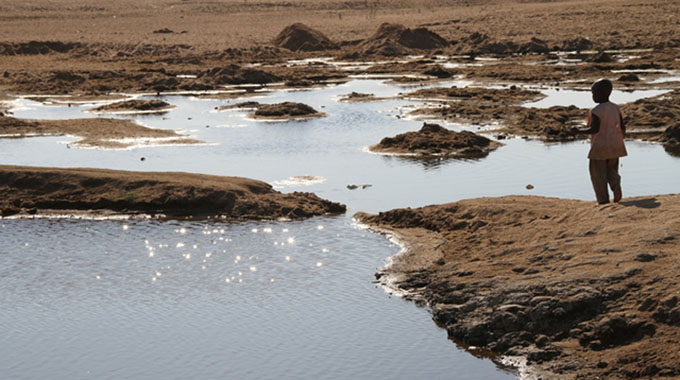
Rumbidzayi Zinyuke Manicaland Bureau
Government will soon start desilting Save River and reviving idle irrigation schemes across the country to increase agricultural activity and ensure food security, Vice President Constantino Chiwenga has said.
He was speaking at the launch of the Presidential Heifer pass-on Scheme at Taguta Farm in Chipinge on Monday.
VP Chiwenga said Government wanted to make sure that food production increases, especially during the Covid-19 period when all countries are worried about feeding their people.
“We are not fully utilising our water resources,” he said.
“We have a programme that was supposed to have started last year, but we were disturbed by the pandemic. We want to dredge Save River and once we have removed the sand from the bottom of the river, water will flow freely and allow farmers to fully utilise it. We want to create a green belt along the river.”
Farmers in Middle Sabi and other areas along Save River have been using water from the river to irrigate their crops.
Due to accumulation of silt, farmers have not been getting as much water into their canals as they need.
VP Chiwenga said Government was also concerned with irrigation schemes that were lying idle and efforts were under way to revive them.
He said there were plans to open up land for irrigation in Chiredzi, Masvingo, Mberengwa and many other areas to ensure food security.
“We cannot continue taking the foreign currency we get from exports to import food,” said VP Chiwenga.
“Covid-19 has affected all countries and it is no longer business as usual. No country is producing food for others, they are all worried about feeding their nationals after this pandemic is over.
“If we do not grow our own food, we will face hunger, so we need to grow enough food for ourselves.
“Wherever there is water, we should have farming activities even if it’s a small piece of land, that is enough to make a meaningful contribution.”
VP Chiwenga said Government was committed to making sure that the winter wheat programme was successful as it was a good way of making sure every province produced enough.
Under the programme, Government has made a commitment to support 65 000 hectares of the national wheat target, with the private sector funding the remaining 15 000 hectares for the country to reach a production of 415 000 tonnes.
Zimbabwe requires at least 400 000 tonnes of wheat a year, but has been importing wheat from other countries.
VP Chiwenga said he would continue to assess progress that all provinces have made in wheat production.
He urged communities to take up small grain production as it was more resistant to droughts and would be a good substitute when maize and wheat crops did not do well.
“We need to achieve targets so that we start building our reserves slowly,” said VP Chiwenga.
“But for us to achieve this, we should all work. No one should sit and wait to be fed.
“We do not want future generations to curse us for leaving them in poverty when our country is rich in resources. Once we do this, Zimbabwe will once again become a breadbasket not only for the region, but for the whole of Africa.”
